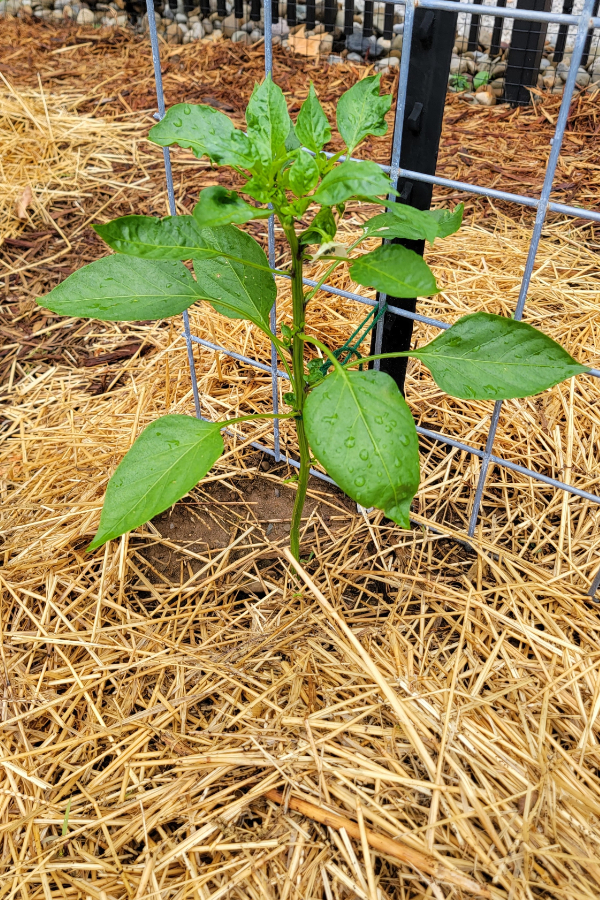Organic Vs. Synthetic Fertilizers: Which Is Best for Supporting Healthy Pepper Plants?
In the realm of nurturing healthy and balanced pepper plants, the option in between organic and artificial plant foods stands as a pivotal choice with significant ramifications. While both choices goal to provide important nutrients to support plant growth, the subtleties of their effect on the soil, plant wellness, and the environment trigger a dispute that mirrors throughout the gardening neighborhood. Recognizing the distinctive benefits and prospective challenges of each fertilizer type is essential for pepper cultivators seeking to optimize their yields while preserving an eco-conscious and sustainable technique.
Advantages of Organic Plant Foods
Organic plant foods provide a lasting and environmentally-friendly technique to beneficial pepper plants, providing necessary nutrients without using synthetic chemicals. These natural fertilizers are originated from organic sources such as garden compost, manure, bone dish, and seaweed, promoting soil wellness and biodiversity. Unlike artificial plant foods, natural choices release nutrients gradually, guaranteeing a well balanced and constant supply for pepper plants to prosper.
One substantial benefit of organic plant foods is their capacity to improve soil framework and water retention. By improving soil health, natural plant foods promote beneficial microbial activity, which helps in nutrient uptake by pepper plants. Additionally, natural fertilizers reduce the threat of chemical run-off, safeguarding water resources from air pollution and securing the environment.
Moreover, organic plant foods add to long-lasting soil fertility by advertising the growth of valuable dirt organisms. These microorganisms assist break down organic matter, releasing nutrients in a kind that is easily accessible to pepper plants. best fertilizers for peppers. By promoting a healthy soil community, natural fertilizers sustain lasting pepper farming methods that profit both plants and the atmosphere
Disadvantages of Synthetic Plant Foods
Artificial plant foods, as opposed to their natural equivalents, pose different downsides when utilized to nourish pepper plants, affecting both plant health and wellness and ecological sustainability. One significant drawback of synthetic plant foods is their tendency to leach nutrients from the dirt rapidly. This fast leaching can lead to vitamins and mineral inequalities in the dirt, triggering plants to suffer from shortages or poisonings. Additionally, artificial plant foods can hurt useful dirt microorganisms, such as earthworms and advantageous microorganisms, disrupting the dirt community's equilibrium.
Moreover, the overuse of artificial fertilizers can add to water pollution. Excess plant foods not taken in by plants can remove right into water bodies, leading to eutrophication, where algae flowers diminish oxygen levels in the water, hurting aquatic life. Synthetic plant foods are typically derived from non-renewable resources, such as fossil fuels, adding to carbon emissions and ecological destruction throughout their manufacturing.
Nutrient Absorption Comparison
Efficient nutrient absorption plays an essential role in the total health and wellness and development of pepper plants. When contrasting artificial and natural fertilizers in regards to nutrient absorption, natural plant foods have the advantage of providing a more well balanced and slow-release source of nutrients (best fertilizers for peppers). Organic plant foods include a selection of macro and micronutrients that are not just beneficial for the plants yet likewise promote healthy dirt microbial activity, which aids in nutrient uptake. On the other hand, synthetic fertilizers typically provide important site a fast launch of nutrients, which can lead to seeping and drainage, resulting in reduced nutrient absorption prices by the plants.
Furthermore, natural fertilizers boost soil framework and water retention capability, enabling pepper plants to gain access to nutrients much more successfully. This enhanced soil top quality assists in root growth, allowing far better nutrient absorption. Artificial fertilizers, although initially enhancing plant development as a result of their high nutrient concentrations, may impede lasting nutrient absorption by degrading dirt wellness in time.
Ecological Influence Factors To Consider

On the various other hand, artificial fertilizers, although typically more focused and promptly readily available to plants, can have detrimental results on the environment otherwise used effectively (best fertilizers for peppers). Their production requires high power inputs, causing greenhouse gas emissions and adding to climate change. The drainage of excess synthetic plant foods can pollute water sources, leading to eutrophication and hurting water ecosystems.
Ideal Fertilizer Practices for Peppers
To accomplish this, it is essential to comply with ideal fertilizer methods tailored to the particular needs of pepper plants. One important technique is to perform a dirt examination before using any fertilizers.
One more vital practice is to feed pepper plants at the appropriate time. Generally, peppers gain from getting plant food at growing and after that once again when they start to blossom. Over-fertilizing can cause nutrition inequalities and harm the plants, so it is vital to adhere to advised application rates.
Additionally, picking a well balanced plant food with an NPK proportion that suits pepper plants' needs is essential. Inevitably, image source integrating synthetic and natural plant foods judiciously can help support healthy pepper plants while minimizing environmental impact.
Conclusion

Organic fertilizers offer a sustainable and environmentally-friendly technique to nourishing pepper plants, offering necessary nutrients without the usage of artificial chemicals. Unlike synthetic plant foods, natural options release nutrients gradually, ensuring a well balanced and consistent supply for pepper plants to grow.
Synthetic fertilizers, in comparison to their natural counterparts, position numerous negative aspects when used to nourish pepper plants, impacting both plant health and wellness and ecological sustainability. When comparing synthetic and organic fertilizers in terms of nutrient absorption, organic plant foods have the advantage of giving a more balanced and slow-release source of nutrients.In addition, organic plant foods boost soil structure and water retention capability, allowing pepper plants to gain access to nutrients a lot more successfully.